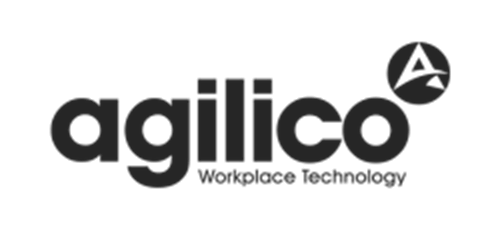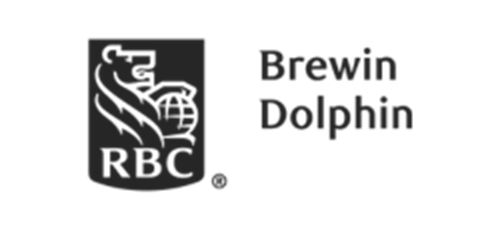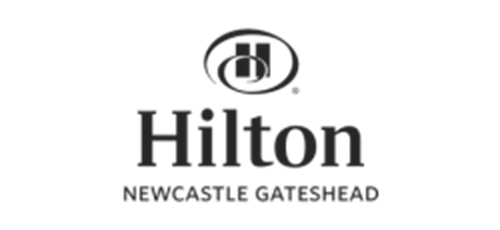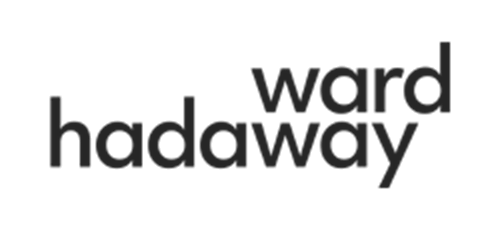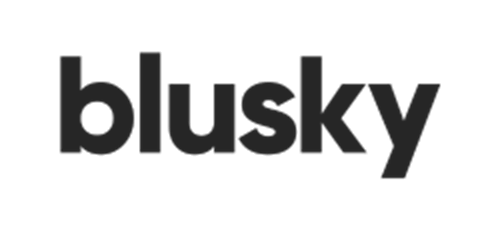Many Entrepreneurs’ Forum members are exploring how they conduct their business operations with a greater emphasis on the impact they have on people and the planet. In this article we discuss the different approaches businesses are taking towards operating in a better, more ethical
and socially responsible way.
There is increasing pressure for businesses to demonstrate their Environmental, Social and Governance (ESG) credentials and major UK companies (those that are publicly quoted or listed, whose annual turnover exceeds £500m, or who have more than 500 employees) are required to report externally on their ESG performance. A growing number of organisations which are not required to report publicly are nevertheless doing so as a matter of best practice.
The government is actively looking at a spectrum of business activity to ensure principles of ethical working practices are embraced by businesses. In the case of the threat to our planet from climate change, the government has put a specific timeframe in place to reach net zero by 2050. It is prompting all businesses to start their net zero journey, encouraging them into action through initiatives such as the UK Business Climate Hub.
Furthermore, from a recruitment and talent acquisition perspective, studies show that between 60-70% of the workforce now say they are minded to move to careers in organisations with a more sustainable and ethical approach. For example, the 2020 ‛Global Talent Trends Study’ by LinkedIn highlighted that 73% of professionals worldwide would consider leaving their current job for one with a company with a strong commitment to environmental and social issues. At a time when securing staff is one of the most pressing challenges businesses face, these studies are good evidence of the business case for creating a more sustainable strategy.
Likewise, consumers are becoming more savvy to the organisations behind the products. Deloitte’s Consumer Tracker research found around a third of consumers have actively chosen brands in the last year with strong sustainable and ethical credentials.
From Triple Bottom Line reporting, Corporate Social Responsibility (CSR) to ESG there are many frameworks that support a more rounded business approach. In this article we are focusing on two different approaches taken by Forum members: B Corp and Business in the Community.
Firstly, B Corp has grown its influence in recent years and certification has been achieved by around 1,300 UK companies. Notable members include The Body Shop, JoJo Maman Bébé, Ella’s Kitchen and Innocent Drinks. Within the Entrepreneurs’ Forum, Robson Laidler, MicroScooters and UMi are all B Corp-accredited with several other members currently going through assessment.
B Corp is a fundamental restructuring of how companies go about doing business across key pillars: Workers, Governance, Environment, Community and Customer. It is a status awarded to ethical and socially-minded businesses that demonstrates how they balance profit with people and the planet. It requires rigorous verification of high standards of social and environmental performance and is administered by the American-headquartered B Lab.
For us, the process offered a really credible and complete methodology for bringing together three objectives - Profit, People, Planet - and how we measured them within our business.
Nicki Clark OBE
We spoke to Forum member Nicki Clark OBE, chief executive of B Corp accredited UMi. UMi is North East based and operates throughout the UK. It provides businesses with a range of services and support to help their growth. The business is in the process of moving operations to its own environmentally-friendly offices in Durham. It is employee-owned.
Nicki says: “We didn't become employee owned until 2010 - three years after we started. It was a natural transition to the way we looked at our business and wanted our people to participate in our business.”
When asked about the rationale for UMi deciding to become a B Corp, Nicki explained: “From very early on we believed we could make a difference through the services we were delivering, but also by the way in which we conducted ourselves. “B Corp for us played a part in the articulation and measurement of our ability to do this. We stumbled across B Corp through online research back in 2018. The process offered a really credible methodology for bringing together three objectives - Profit, People, Planet - and how we measured them within our business. “B Corp complemented our size, our ambitions and ideology. It won't necessarily be relevant or proportionate for every business.”
With three quite different areas of emphasis - profit, people and planet - balance is clearly important. Nicki believes profit helps to achieve their objectives for people and the planet. She said: “We can’t risk getting too soft and fluffy about this. It has to be right for your business from a commercial perspective as well. We’ve had to make sure that we don't put too much emphasis on the environment versus profits. “If businesses don't genuinely believe there needs to be harmony across three things, people, planet and profit, they will get caught out. One bit of their business model will behave in a way at odds with the other bit and consumers will spot it. “Being a B Corp adds value to us in all sorts of ways. You become like-minded values. So it becomes quite a supportive network. There is a commercial relationship with the B Corp movement too - it does open up contract opportunities. “A word of caution though - if you’re just doing it for the certification, well it’s a really hard process! And the values it should bring to your business through its adoption just
don’t last if it is a tick box exercise. B Corp is a change to your business culture coming from a genuine place.”
For Nicki, embedding a positive business culture across supplier relationships and recruitment is a
critical part of UMi’s approach. Influencing other businesses in terms of encouraging them to do business
better is something that inspires Nicki. She said: “That sort of energy, of a kind of ‘movement’ of doing
better business together is exciting. It allows us to have a conversation with prospective suppliers and ask them - have you thought about this type of business approach?”
Whilst B Corp is gaining a lot of media attention, as Nicki pointed out, it’s not necessarily the right fit for all
businesses. We spoke to Forum member, Mark Thompson, managing partner at award-winning architectural
practice Ryder Architecture, to understand their approach.
Mark’s desire for Ryder to continue to be a better business has taken a different approach to B Corp. Instead, the practice has worked with Business in the Community to drive forward its ethical and community objectives. Business in the Community was established in 1982 as a not-for-profit and is the largest business-led membership organisation dedicated to responsible business. With over 300 UK members, they focus on
helping businesses have a healthier impact on their community and environment by providing practical
toolkits and advice to develop organisational strategies.
For Ryder, this different route to embedding a programme of ethical and social value activity across
their business felt a better fit than the B Corp route. Mark explains the background to their approach. He says: “Back in the mid 90s, when Peter Buchan and I took the practice forward, we gave money to the local primary school in Killingworth for their book club. Back then, it was just seen as being a ‘good neighbour’.
“We knew Ryder was doing good, but we didn't really shout about it. At the end of each year we'd ask: how much money have we donated and how many hours of volunteering have our staff done? And how many work experiences have we actually offered…? We found that it was very difficult to gather data. “Measuring progress was important and we knew we needed to find a process for this. We took the decision to align with Business in the Community and the work they do. “Business in the Community gives us a dashboard which enables us, as a practice, to monitor our progress. For example, we can track people's work experience. We've always supported student bursaries and now we can measure the volume of bursaries we offer and grow this total. We've got Plan BEE - a higher apprenticeship programme involving academic and industry bodies - and we can track progress.”
Mark added: “This approach to better business has to be organic and real to your business culture. It's got to be embraced and driven from within. We did look at B Corp but it felt quite corporate and didn't really fit our
identity. It felt too business-to-consumer rather than business-to-business oriented.”
Mark adds: “We focus on working with people with the same mindset and collaborating with like-minded
businesses helps open up other opportunities and recommendations. “When we are lead consultants on
a project and employing subconsultants we share the responsibility of community-impact activities. Where we are collaborating with contractors, engineers and designers all on a similar course for a project, it works well when we embrace similar values.”
Whatever the route a business chooses to follow, it needs to make commercial sense. Mark adds: “We've
got to make money first of course. But then the question is what you do with that money: how much you
invest in your people, how much you invest in other good causes…”
Being successful commercially allows businesses to invest in more caring, community-driven initiatives. Ryder
made the decision to put a figure on it. Mark explains: “It’s a good thing to have a target. We target 2% of
turnover going to good causes.” The impact of influencing others is not lost on Mark. He acknowledges
that by setting a positive example of measuring and reporting progress on initiatives focused around areas such as apprenticeships or ‘giving back’ can inspire other partners and the wider supply chain. He adds:
“Business with social values can change not just us but other people too. The most powerful thing you can
do as a business owner is to help change the industry for the better, not just your own organisation.”
Both Nicki and Mark agree that it makes good commercial sense to have a strategy that supports the
community in which they operate. Attracting and retaining employees is one of the biggest challenges
employers face and there is growing evidence that employees want to work for companies that genuinely
care about their impact on the wider world in which they operate. Whilst both have taken different approaches, each has sought data to monitor and track progress being made. Both entrepreneurs encourage others to find a framework that works for their own business, fits its values and has a genuine authentic meaning for their culture.
For more information visit bcorporation.uk or btic.org.uk.
Click here to read the latest edition of forum.

